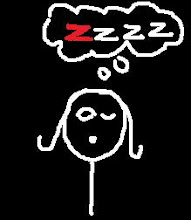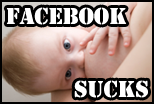I've been thinking a lot about Her Bad Mother's call to action, and I've decided to jump on the bandwagon. Hope it doesn't tip over. I've spent the last few days reading about other blogger's causes, and I hesitated to put my two cents in because I was humbled by what I read. I'm not very "cause-y" really, and I often find myself avoiding people with megaphones and pamphlets. I'd like to get more involved in things, but I don't think it makes me a bad person if I don't. A cause doesn't always have to help the world, though. Sometimes it can just help you to think about things differently. If it's important to you and is something that you're passionate about, it's enough.
Early on in my maternity leave, I came across an interesting book in my local Book City: "Einstein Never Used Flash Cards". The title caught my attention, and although I walked away without buying it, I couldn't stop thinking about it. So the next week I went back and bought. And it changed my life. At least, it changed my way of thinking about life and raising children.
For those who don't know about it, the book challenges the idea that you need to use flash cards, buy fancy Leapfrog-ish toys, or sign your kids up for millions of classes in order to create the world's next genius. They acknowledge the immense pressure on parents these days to make sure that their kids aren't "missing out" or being "left behind", if they aren't enrolled in every class that their youthful peers are taking. They proffer that memorizing, while useful, doesn't mean that the child has actually learnt something or is smarter. For instance, being able to recite the alphabet is impressive and entertaining, but if the child doesn't know what letters are or what they are used for, they haven't really learnt anything other than how to memorize something by rote.
The focus of the book is that children need to play more and memorize less. It is in playing that children truly learn. Through play, children develop a love of learning and become happy, successful adults. This idea has become my passion, not because I can change the world, but because I can change the life of one person - my son . And maybe if I can get the word out to enough people, I can help enrich other lives as well. What you can do is simple and laid out in the book:
**Join in the play - be a part of their world. They think it's more fun when a parent joins in and it gives them validation of their ideas.
**Don't buy expensive toys - invest in "toys" that foster creativity. An empty box can be a castle. And some of the best toys that you can buy for your child are things that people overlook as being too old fashioned: stacking blocks, playdough, crayons and paper, old clothes for costumes.
**Let the child lead the play, don't try to direct how you think the game should go.
**Encourage imagination by letting boredom happen. Some of the best creativity comes from a child who was bored, and didn't have a parent or an overloaded "play schedule" to save them from it. Some structure is good for kids, but control is not.
So that's my little cause. It's not Aids, or World Hunger, but it means a lot to me. And it may just mean the world to one little Boy I know...
Let the games begin!







6 comments:
I read this book, too, and I found it so empowering to find research supporting my innate discomfort with early efforts to cultivate a genious toddler. I don't think it's problematic to enroll kids in a class or two, but the pressure to fill your schedule with activity after activity seems excessive.
I recommend the book to all my friends with young children -- thanks for mentioning it here!
I really need to read that book. Bub is a spontaneous memorizer and it's a bit of a worry - one of the autism-like traits that I'm keeping my eye on. He can count to 39 and identify the letters of the alphabet in upper- and lower-case, but he's not yet using language to describe past or future experiences and he's lagging behind on social development. All of which is to say that you (and the book) are right - memorization and "academic" skills aren't what it's about at this age.
Fortunately, I'm REALLY good at letting him play on his own (not always so good about getting in there myself, though).
very important cause! I'll definitely give it a read.
I wrote a somewhat aggressive post about why I hate baby einstein, but really, the point is that we need to let kids be kids, and realize that play IS their work.
This is a very Waldorf-ian philosophy; one that I think benefits kids.
Oh, I am so with you. Kids should be kids, and they plenty of important things to learn about the world as kids before we start stuffing them with INFORMATION. I loathe the whole BE/LeapPad/flashcard/superbaby thing. Not only does it create weird expectations and competitiveness, but some of it also smacks of parents who want someone else to teach their kids what they might otherwise have to do by putting in time one-on-one.
I think that this is an excellent cause, one that mothers should be shouting from rooftops! Kittenpie is right, I think - 'tricks'become a substitute for real engagement.
Thanks so much for writing this.
(It's linked up now, btw!)
The power dynamics within theatrical productions can be fascinating.
Post a Comment